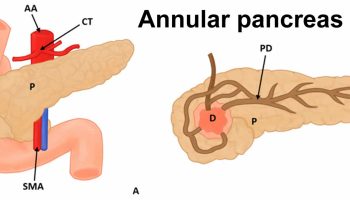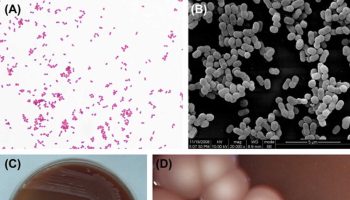Contents
What is implantation bleeding
Implantation bleeding — typically defined as a small amount of light spotting or bleeding that occurs about 10 to 14 days after conception and it is normal. Implantation bleeding is thought to happen when the fertilized egg attaches to the lining of the uterus. Implantation bleeding usually occurs around the time you would expect to have a menstrual period, so it’s often confused with having an early period. However, implantation bleeding is lighter than menstrual bleeding.
Some women don’t experience implantation bleeding and others don’t notice it. It’s also possible to mistake implantation bleeding for a light period. If this happens, you might not realize that you’re pregnant — which can lead to mistakes when determining a baby’s due date.
Implantation bleeding is light, stops on its own and doesn’t require treatment. If you’re concerned about any vaginal bleeding or vaginal bleeding during pregnancy, contact your health care provider.
Bleeding and spotting from the vagina during pregnancy are common. Up to half of all pregnant women have some bleeding or spotting during their pregnancy. Bleeding and spotting in pregnancy don’t always mean there’s a problem, but they can be a sign of miscarriage or other serious complications. Miscarriage is when a baby dies in the womb before 20 weeks of pregnancy.
The most common early signs and symptoms of pregnancy might include:
- Missed period. If you’re in your childbearing years and a week or more has passed without the start of an expected menstrual cycle, you might be pregnant. However, this symptom can be misleading if you have an irregular menstrual cycle.
- Tender, swollen breasts. Early in pregnancy hormonal changes might make your breasts sensitive and sore. The discomfort will likely decrease after a few weeks as your body adjusts to hormonal changes.
- Nausea with or without vomiting. Morning sickness, which can strike at any time of the day or night, often begins one month after you become pregnant. However, some women feel nausea earlier and some never experience it. While the cause of nausea during pregnancy isn’t clear, pregnancy hormones likely play a role.
- Increased urination. You might find yourself urinating more often than usual. The amount of blood in your body increases during pregnancy, causing your kidneys to process extra fluid that ends up in your bladder.
- Fatigue. Fatigue also ranks high among early symptoms of pregnancy. During early pregnancy, levels of the hormone progesterone soar — which might make you feel sleepy.
Other less obvious signs and symptoms of pregnancy that you might experience during the first trimester include:
- Moodiness. The flood of hormones in your body in early pregnancy can make you unusually emotional and weepy. Mood swings also are common.
- Bloating. Hormonal changes during early pregnancy can cause you to feel bloated, similar to how you might feel at the start of a menstrual period.
- Cramping. Some women experience mild uterine cramping early in pregnancy.
- Constipation. Hormonal changes cause your digestive system to slow down, which can lead to constipation.
- Food aversions. When you’re pregnant, you might become more sensitive to certain odors and your sense of taste might change. Like most other symptoms of pregnancy, these food preferences can be chalked up to hormonal changes.
- Nasal congestion. Increasing hormone levels and blood production can cause the mucous membranes in your nose to swell, dry out and bleed easily. This might cause you to have a stuffy or runny nose.
Unfortunately, many of these signs and symptoms aren’t unique to pregnancy. Some can indicate that you’re getting sick or that your period is about to start. Likewise, you can be pregnant without experiencing many of these symptoms.
Still, if you miss a period and notice some of the above signs or symptoms, take a home pregnancy test or see your health care provider. If your home pregnancy test is positive, make an appointment with your health care provider. The sooner your pregnancy is confirmed, the sooner you can begin prenatal care.
When does implantation bleeding happen?
Implantation bleeding happen at about 10 to 14 days after conception. Moreover, implantation bleeding usually occurs around the time you would expect to have a menstrual period, so it’s often confused with having an early period. Implantation bleeding is thought to happen when the fertilized egg attaches to the lining of the uterus.
How long does implantation bleeding last?
Implantation bleeding only happens while the egg is fixing itself to the uterus, it may last as little as a few hours or up to 1-2 days. It will remain light and possibly stop and start during this time. There are normally no clots. If bleeding starts off light, but gets heavier, has a constant flow and lasts 4-7 days it is almost certainly your period.
Implantation bleeding vs Period
There are several key differences between implantation bleeding and menstrual period (menstruation) which can help you work out whether you’ve conceived or not.
- Color: for implantation bleeding the discharge or spotting will usually be pinkish or dark brown, whereas period blood tends to be bright, vibrant red.
- Duration: as implantation bleeding only happens while the egg is fixing itself to the uterus, it may last as little as a few hours or up to 1-2 days. It will remain light and possibly stop and start during this time. There are normally no clots. If bleeding starts off light, but gets heavier, has a constant flow and lasts 4-7 days it is almost certainly your period.
- Timing: implantation bleeding usually happens about 10 days after ovulation, while menstruation normally occurs after 14. So pinkish spotting on day 22-25 is more likely to be implantation bleeding than first signs of menstruation (usually around day 26-27).
- Cramping: it is possible to experience light cramping when the egg is attaching itself to the womb, but it would be very faint and not increase in strength. That’s compared to cramps caused by menstruation which are usually more intense and get stronger.
Implantation bleeding symptoms
Implantation bleeding symptoms may include:
- A pink or brownish discharge or spotting
- Light or faint stomach cramping
- Mood Swings
- Headaches
The tricky thing is that most of these symptoms can also be early signs of pregnancy. It’s possible that you’ve been checking your breasts for tenderness and scrutinizing your undies since about day 18 of your cycle.





